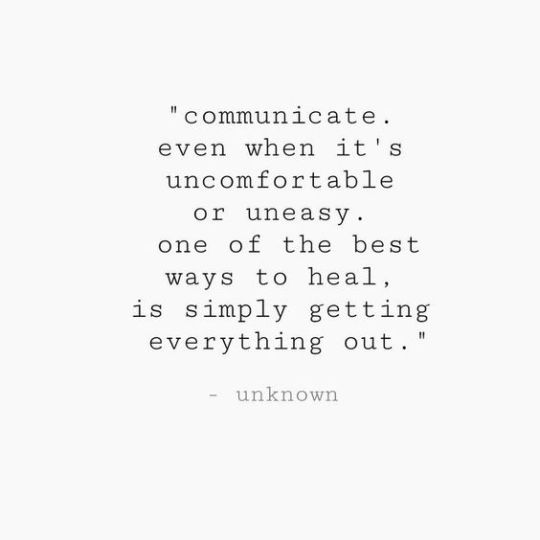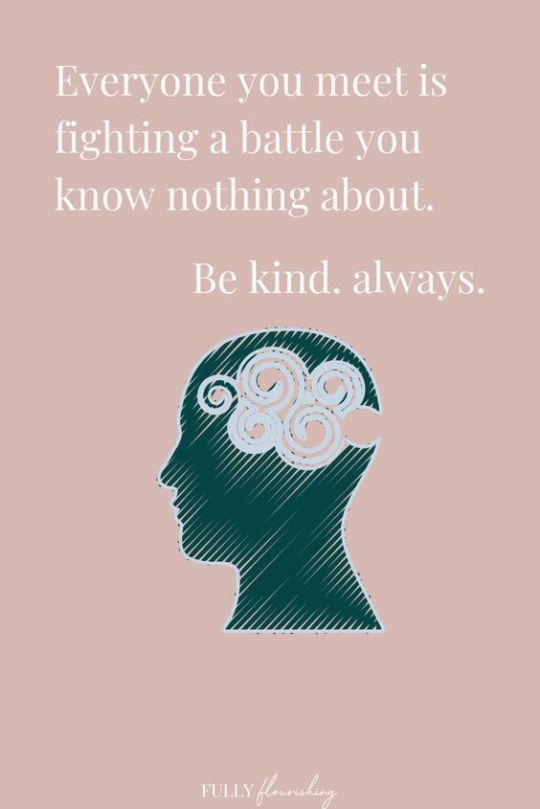#workplacementalhealth
Explore tagged Tumblr posts
Text
Is Job Anxiety Affecting Your Health? Here’s What Workers Say
Cast Of Thousands / Shutterstock.com Editor’s Note: This story originally appeared on Zety.com. If you’ve ever spent your Sunday evening dreading the workweek ahead, you’re not alone. Zety’s Sunday Scaries & Job Anxiety Report reveals that this feeling isn’t just a passing worry.... Read More

#JobAnxiety#WorkplaceStress#MentalHealthAtWork#EmployeeWellbeing#WorkplaceWellness#StressManagement#MentalHealthAwareness#WorkStress#JobBurnout#EmployeeHealth#WorkplaceMentalHealth#AnxietyInTheWorkplace#WorkLifeBalance#CareerStress#MentalHealthSupport#WorkplaceCulture#StressRelief#EmployeeSupport#HealthAndWellness
0 notes
Text
Why Leaders Need to Prioritize Employee Mental Health

In today's fast-paced work environment, employee mental health is more important than ever. As leaders, prioritizing mental well-being isn't just a compassionate choice—it's a smart business strategy. Happy, healthy employees are more engaged, productive, and innovative, contributing to a more positive and successful workplace.
Mental health challenges, such as stress, anxiety, and burnout, are becoming increasingly common. When left unaddressed, these issues can lead to higher absenteeism, decreased performance, and higher turnover rates. Leaders who create a supportive work environment where employees feel safe to discuss and address mental health struggles not only enhance employee satisfaction but also build a more resilient and committed workforce.
By investing in mental health programs, offering flexibility, and fostering open communication, leaders can show their commitment to the well-being of their teams. This not only improves individual performance but also strengthens organizational culture and boosts overall business outcomes.
At CorporateOne, we believe that prioritizing mental health leads to a more engaged and productive workforce. Visit us at www.corporate.one to learn more about how we can help your organization foster a healthier work environment.
#EmployeeMentalHealth#Leadership#CorporateWellbeing#CorporateOne#EmployeeSupport#CorporateCulture#WorkplaceMentalHealth#BurnoutPrevention#WorkplaceHappiness#StressManagement#EmployeeEngagement#WellnessAtWork
0 notes
Text
Workplace Mental Health
Prioritise workplace mental health with programs that support well-being and productivity. We bring solutions to your team. #WorkplaceMentalHealth, Visit: https://mentalhealthmovement.com.au/mental-health-workplace-blueprint/

0 notes
Text

Transform Workplace Well-Being with Solh Wellness Corporate Programs
Boost productivity and foster a positive work culture with Solh Wellness's tailored Corporate Wellness Programs. Our holistic approach prioritizes mental health through expert counseling, stress management techniques, and employee engagement initiatives. Empower your team to thrive with tools that enhance resilience, improve focus, and promote overall well-being. Let’s create healthier, happier workplaces together!
#CorporateWellnessPrograms#WorkplaceMentalHealth#EmployeeWellBeing#StressManagement#HolisticWorkplaceSolutions
1 note
·
View note
Text

"Corporate Wellness Programs & Internships in Psychology | BBRFI - Advancing Mental Health & Professional Growth"
"BBRFI offers impactful Corporate Wellness programs alongside comprehensive psychology internships to promote mental health and professional development. Our programs are designed to support workplace wellness and equip future psychology professionals with hands-on experience. Partner with BBRFI to enhance your organization's wellness and foster a healthier, more resilient workforce.
#CorporateWellness#WorkplaceMentalHealth#PsychologyInternships#BBRFI#ProfessionalGrowth#EmployeeWellness"#This title and description can help attract both organizations inter
0 notes
Text
Social Media and Mental Health: Workplace Wellness in Delhi
Explore the impact of social media on mental health and discover strategies for recognizing and addressing mental health issues at work. Qris Health provides insights into mental health wellness in Delhi, offering guidance to promote a healthier work environment and improve overall well-being. Book now (9289589692) for Mental Health Wellness Near Me.
#QrisHealth#SocialMediaImpact#MentalHealthAwareness#WorkplaceWellness#DelhiHealth#MentalHealthSupport#MentalWellbeing#WorkplaceMentalHealth#SocialMediaEffects#DelhiWellness
0 notes
Text
#MentalHealthMyths#MentalHealthStigma#DebunkingStereotypes#MentalIllnessMisconceptions#WorkplaceMentalHealth
0 notes
Text
Building Resilience: A Cost-Effective Strategy to Enhance Mental Health and Workplace Well-Being in India

In order to manage the burden of mental health problems in the world, we need to develop cost-effective and safe preventive interventions. Resilience education may be a helpful tactic to support overall coping skills with life's adversities.
The resilience program in India teaches you how to adjust to difficult situations and concentrate on the positive aspects of life. It provides you with resources to deal with unforeseen issues. Greater resilience can improve your life, strengthen your emotions, and reduce stress and anxiety.
Additionally, it can enhance their mental and emotional health, which can result in increased job satisfaction and a happier workplace. Developing greater resilience gives you the ability to not only overcome adversity but also to advance and even enhance your life in the process.
Investing in resilience program for employees burnout improves productivity and well-being at work, as well as individual performance.
#resiliencyprogram#workplacewellbeing#employee burnout#stress management#mentalhealthawareness#WorkplaceMentalHealth#healthyworkplace#stressrelief
0 notes
Text
Mental Health Training | Training For Life
1 note
·
View note
Text
🌍 Addressing Mental Health in the Global Workforce 🌍
In today's interconnected world, mental health challenges are a universal issue affecting employees across all industries and regions. The recent article on "Mental Health Challenges in the Global Workforce" sheds light on the prevalence of these issues, their impact on productivity, and the importance of creating supportive work environments.
Discover how organizations worldwide are prioritizing mental well-being and learn actionable strategies to support your team. Together, we can foster a healthier, more resilient global workforce.
🔗 [Read the full article here]
#MentalHealth#GlobalWorkforce#EmployeeWellbeing#WorkplaceMentalHealth#HR#Leadership#remotework#artificial intelligence#marketing#founder#adaptability#digitaltransformation#innovation#machine learning#branding#futuretech
0 notes
Text
Psychological Wellbeing of Healthcare Workers Amidst COVID-19
As resources for medical treatment are limited and the demand for treatment is high, stress and anxiety are magnified in frontline healthcare workers, patients of COVID-19, and their families.
I am grateful to have participated in the informational webinar two days ago that was hosted by David Murphy and Julie Highfield under The British Psychological Society because I am inspired by the efforts being made towards psychological support for healthcare workers. I learned about the potential long-term psychological effects of these healthcare workers (post-traumatic stress, resentment, guilt, avoidance, and more), so taking note of 10 recommendations for their psychological well-being, as published in the guidance written by the BPS’s Coronavirus Staff Wellbeing Group, is valuable and reassuring.
In summary, professionals of the psychology community and leaders in the healthcare industry are recommended to begin establishing clear leadership for the rest of the staff, communicate openly and structurally in order to alleviate some of the anxiety that stems from uncertainty, and to return to one’s own core values when making decisions. For all others, normalizing psychological responses in daily conversations and maintaining human connection and peer support are great ways to keep mental wellbeing in check. Moving forward, the community should look into providing more accessible psychological care to patients and families, which could relieve the burden that healthcare workers experience while also supporting the patients’ and their families’ mental health.
During the Q&A session, hundreds of professionals submitted and up-voted questions they wanted to ask during the live webinar on Zoom. One of the most frequently-asked questions was, given that supplies and resources are limited, what and how should we prioritize? The response to this difficult question was decidedly physical safety and wellbeing--ensuring that basic needs and physical resources are met. Highfield made sure to emphasize the connection between physical health and psychological wellbeing; healthcare workers are consistently exposed to COVID-19 in hospitals and are also experiencing isolation from peers outside of work due to government policy, but the accumulation of these factors can be anxiety-inducing and traumatic to frontline workers. Drawing from previous SARS research, The BPS noted that healthcare workers in a Toronto hospital that treated SARS patients were significantly more likely to experience burnout and leave the workplace than workers from a nearby hospital that did not treat SARS patients. The recommendation for this current pandemic while understanding a limitation in resources is to meet the physical needs of these healthcare workers.
Although I am not a professional, I, as a psychology student and an advocate for mental health, hope to further my advocacy by being well-informed, sharing helpful information, and normalizing instinctive emotional responses such as stress and dissonance at a time like this.
Thank you nurses, doctors, pharmacists, grocery store workers, psychologists, leaders worldwide, and much more for doing as best as you can for the people. You are so appreciated!
Stay educated and take care.
#mentalhealth#wellbeing#covid19#workplacementalhealth#healthcare#leadership#psychology#newsinpsychology
1 note
·
View note
Text
Mental Health at Work



Earlier this year I went through a really difficult time where I was experiencing issues at work that were severely impacting on my mental health. It caused so many problems for me that it resulted in me being signed off work for three weeks. The working environment became so toxic and negative that I soon left the company altogether. However during this awful time I approached my area manager and HR in an attempt to come up with a solution for the issues that I was facing. This led to back and forth meetings with HR in the hope that I could highlight the lack of mental health awareness in the workplace and be able to offer some advice on how they could look to improve as a company. The working environment was not anxiety friendly at all and there were certain company policies that were discriminatory towards those who suffer from mental illness.
As a result of my efforts adjustments were made to the company policies that I had pointed out. In the last meeting that I had with HR, arrangements had been made for every manager in the area to identify which of their employees suffer from a mental illness and more mental health awareness training was to be offered to all members of management across the area. The issues I raised had been brought to the regional meeting to be discussed at a higher level. Alongside this I was named the first mental health ambassador for the area and was asked to be interviewed so that my experiences could be shared across the internal company website!
It goes to show that change never comes from suffering in silence. It comes from bravery and persistence! These changes may not have happened soon enough to help me, but my motivation throughout this whole process was the thought that this could potentially help someone else.
I hope my interview is able to offer some useful advice about mental health in the workplace.
1) What is your mental health condition?
My mental health condition is commonly known as Generalised Anxiety Disorder. This is best described as an ongoing state of mental and/or physical tension and nervousness, without the ability to take a break from the anxiety.
2) Tell us a little known fact about your mental health condition?
Generalised Anxiety Disorder also known as GAD is a serious mental health condition that is a lot more common than most people realise. According to official statistics from Anxiety UK 1 in 20 of us will experience GAD at some point in our lives.
3) What is it like living with GAD?
For me, living with Generalised Anxiety Disorder is like having a bully that I can’t run away from, constantly filling my head with harsh self-criticism, fear, guilt and shame. I'm in a constant battle with my mind and this makes life difficult for me as anything can become a potential trigger.
GAD can be extremely incapacitating and terrifying for me as when it’s really bad I feel a continual sense of dread, as if something awful is going to happen. It feels like walking down a dark alley at night, waiting to go into a job interview and at the same time waiting at the top of a roller coaster. I start worrying about lots of different things and find it almost impossible to relax, sleep or eat because my mind is constantly in ‘fight or flight mode’. This results in major physical symptoms such as sensory overload, migraines, nausea, racing heart, dizziness and fatigue. In addition to this it affects my day to day life as I also suffer with Social Phobia, Intrusive Thoughts and Agoraphobia, so simple things such as having a conversation with someone, deciding what to wear in the morning or just leaving the house can cause me great distress as I tend to excessively overthink all of my actions.
4) What advice would you give to someone suffering from a mental health problem?
Even though it is the most difficult thing to do, it is so important to speak to someone that you can trust about how you’re feeling or contact your local mental health team to speak to a professional. When I first became concerned about my mental health I reached out to a friend of mine who is very open on social media about her mental health condition. It felt so much better to know that I was not alone in how I was feeling and that there was someone else who could relate to what I was going through.
What I found most helpful was doing some research into my symptoms to gain a better understanding about anxiety disorders, as initially it can be scary and confusing. I also found it useful to share my research with those closest to me so that they could understand the best ways to support me.
In addition to this I would highly recommend downloading a mood tracker on your phone to help you keep track of how you’re feeling daily, this can also be really helpful to use in therapy sessions.
5) Have you ever encountered any issues at work?
When I first joined the company I was undiagnosed, homeless and in a really bad place. My first manager was amazing and very understanding. She worked with me providing support and one to one sessions whenever I needed them. She also worked around my therapy sessions and made adjustments to my shifts when I was feeling unwell. Her support throughout my journey made my working environment a really positive place that aided my recovery. This was due to the fact that she also suffered from Anxiety and therefore had a better understanding of the condition. When my first manager left I found it very difficult to build up that same level of understanding with other managers. Sadly mental health is still something that many people don’t fully understand so when my first attempts at a solution were unsuccessful I raised the issue to senior members of management and finally the Area manager. I refused to stop until I was happy with the outcome and as a result, adjustments were made to continue supporting my mental health journey at work.
6) What do you do to self care?
As part of my self-care it is important that I stick to a routine as this helps me to feel more calm and relaxed. Some of the things that I do to self-care are as follows:
Exercise
Trips to the spa
Yoga and Meditation
Writing poetry
Colouring books/painting
Write something positive at the end of every day
Spend time in nature
Play my favourite relaxing playlist
Limit my time on Social Media
Another self-care tip would also be to give yourself time to feel your emotions. If you’re having a bad day, don’t feel guilty about it just give yourself the time that you need to feel better.
8) What can we do to reduce stigma around mental health?
We can start by raising awareness in the workplace and providing more information to management and staff about the most common forms of mental health illnesses. This can be done through training sessions or team building activities. It would make mental health seem like less of a taboo subject and hopefully get more people talking about it throughout the year. Our work colleagues, family members, friends and customers can all potentially suffer from some type of mental health illness, so it is in our best interest to make sure that we are as well informed as we can be so that we can offer the support wherever it is needed.
7) Where do you seek help?
I often talk through my thoughts with my close family members as they can give useful advice or offer a different perspective. I also have weekly therapy sessions where I talk to a mental health professional about how I am coping with my mental health conditions.
8) How do you achieve a work/life balance?
I lead a very busy lifestyle, outside of fashion retail I am also a motivational speaker and a freelance fashion designer working towards my own fashion business so finding that work/life balance is a challenge for me. However to help me achieve this balance I have to stick to a routine, this way I can make sure that every week I am finding time to do the things that I enjoy. I also set alarms throughout the day to remind myself to do some self-care, take breaks and relax.
#WorldMentalHealthDay#mental health#black women#blackmentalhealth#workplacementalhealth#mentalhealthambassador#interview
3 notes
·
View notes
Text
Workplace Mental Health
Searching for workplace mental health solutions? We provide resources and strategies to foster a supportive and mentally healthy workplace for your team. For #WorkplaceMentalHealth, Visit: https://mentalhealthmovement.com.au/mental-health-workplace-blueprint/

0 notes
Photo

Another paw-fect day 🐾 #travel #picoftheday #cutestdog #pawday #wework #inspiringmomentum #scrapthemaps #saturdayworking #workplacementalhealth (at WeWork) https://www.instagram.com/p/CklQi77pVMn/?igshid=NGJjMDIxMWI=
#travel#picoftheday#cutestdog#pawday#wework#inspiringmomentum#scrapthemaps#saturdayworking#workplacementalhealth
0 notes
Photo

I'm the EAP (Employee Assistance Program) Counsellor for Exxon Mobil in Longford, Gippsland Victoria, This is a YouTube video which is sent to all employees inviting them to come and see me for a company subsided Counselling appointment. This Consultation is free of charge to the employee and is totally confidential. MC Counselling can provide EAP to your workplace and depending on where you are located, on-line, phone or face to face Consultations. #eap #eapprograms #workplacementalhealth #counselling #counseling #counselor #counsellor #anxietyrelief #depressionhelp #mccounselling ONSITE COUNSELLOR EXXON MOBIL LONGFORD https://youtu.be/cvpT25GHxMA (Clickable link in mccounselling story) (at Seaspray, Victoria, Australia) https://www.instagram.com/p/Ca1Z2djvGFs/?utm_medium=tumblr
#eap#eapprograms#workplacementalhealth#counselling#counseling#counselor#counsellor#anxietyrelief#depressionhelp#mccounselling
0 notes
Link
0 notes